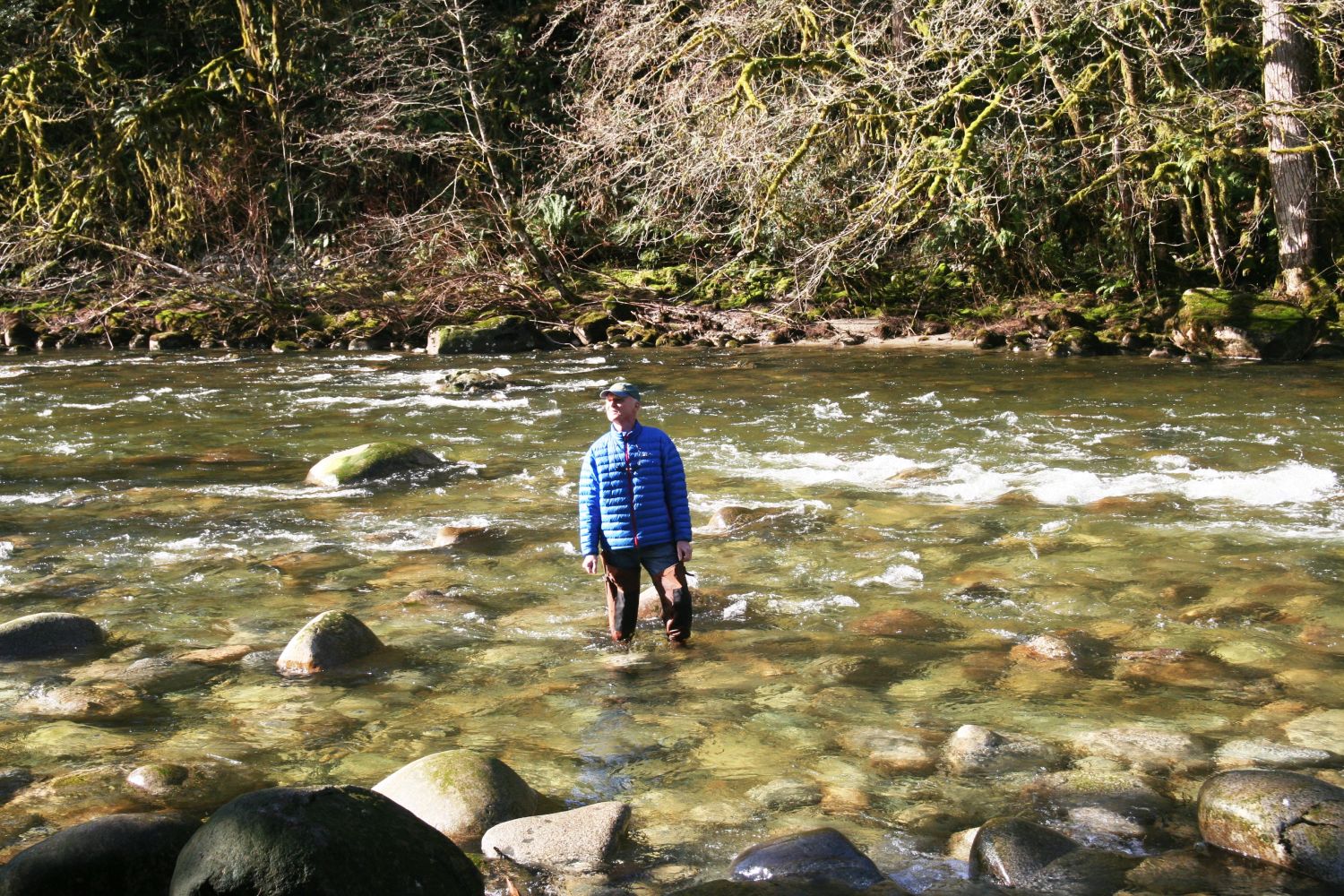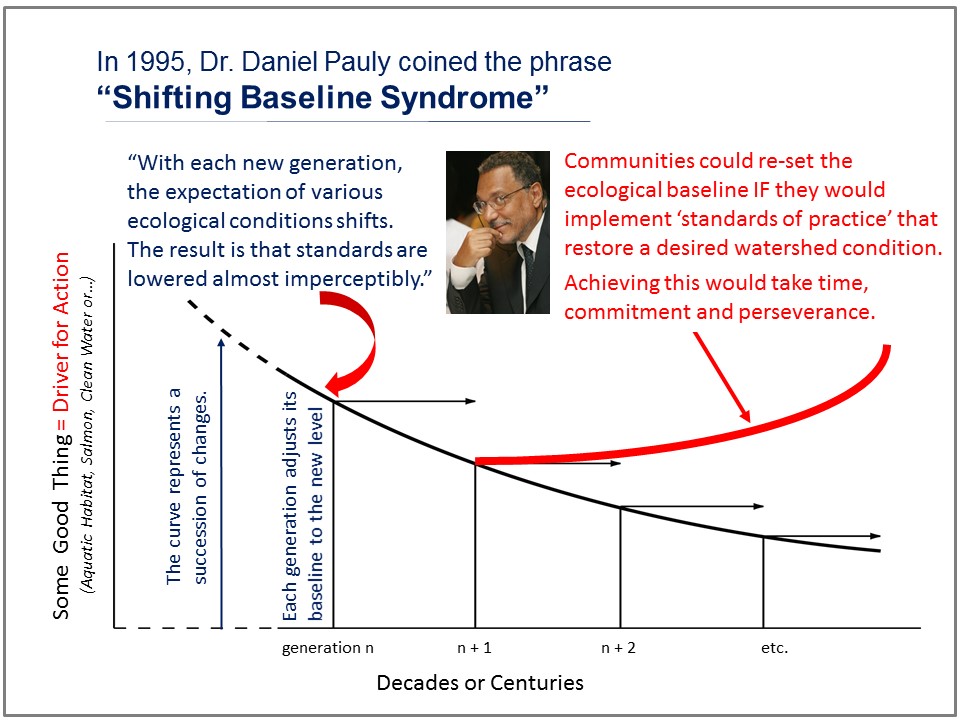“Care for our waterways must be on British Columbia’s election radar,” says Mark Angelo
Note to Reader:
A group of British Columbia’s largest conservation and recreation groups have come together to ask all provincial political parties to develop policies and positions relating to rivers as part of their election platform. The election is in May.
Among those leading the campaign is the 100,000 member Outdoor Recreation Council. Mark Angelo is the Council’s rivers chair. He is an internationally-celebrated river conservationist, writer, speaker, teacher and paddler.
Mark Angelo is the founder and chair of both the BC Rivers Day and World Rivers Day. He is also chair emeritus, BCIT Rivers Institute, and an Order of BC and Order of Canada recipient for his river conservation efforts.

Mark Angelo wading across the Seymour River, one of BC’s most endangered waterways as a result of a major rockslide that blocks the migration of salmon (work is under way to try and mitigate the damage) – photo credit Dave Pinton
What Happens on the Land Matters: “Issues pertaining to rivers and water will be key in shaping our province for generations to come,” predicts Mark Angelo,
Chair Emeritus, BCIT Rivers Institute
“British Columbia is blessed with a river heritage that is among the finest in the world and yet, our waterways continue to face an array of pressures,” states Mark Angelo.
 “The goal in bringing together a coalition of conservation and recreation groups is to generate a greater public awareness of the importance of these issues and persuade all political parties to take in-depth positions on these matters.”
“The goal in bringing together a coalition of conservation and recreation groups is to generate a greater public awareness of the importance of these issues and persuade all political parties to take in-depth positions on these matters.”
“This type of discussion is timely in that many British Columbians view the proper care of rivers, and our water resources in general, to be among our most pressing environmental issues. It is also my belief there would be strong public support for a multi-faceted approach aimed at addressing a host of important issues pertaining to rivers and water.”
“Among the key elements being proposed is the need for a significant new Watershed Sustainability Fund aimed at supporting key river restoration and management projects.”
“Many waterways could benefit from such an initiative, ranging from the Cowichan River on Vancouver Island, which suffers chronic problems with low summer flows — to the Seymour River on Vancouver’s North Shore, where work is currently underway to restore fish passage after the devastating rock slide in 2014 — to Fraser Valley tributaries with numerous flood-control structures in need of upgrading to enable the passage of salmon to significant stretches of blocked habitat.”
“In addition to the need for a new funding program, the coalition has identified a range of other river-related policies that could be embraced by all parties. This provides political parties with a checklist of actions that they could address.”
“The size of our coalition is also significant in that many British Columbians want to see all political parties address issues around rivers and water in the run-up to the election,” concludes Mark Angelo.
To Learn More:
Click on Care of waterways must be part of political-party platforms to read the Op-Ed by Mark Angelo as published in the Vancouver Sun.
Click on BC’s Largest Conservation and Recreation Groups Align to get Rivers on the Political Radar in run-up to 2017 election to download a document that provides details of the 10 actions identified by Mark Angelo et al.
Reversing the “Shifting Baseline Syndrome” –
By ‘designing with nature’ on land, communities could
re-set the ecological baseline within rivers and streams
In 1995, global fisheries scientist Dr. Daniel Pauly coined the phrase Shifting Baseline Syndrome to explain how, with each new generation, the expectation of various ecological conditions shifts. Historically, this has resulted in an incremental decline which Daniel Pauly explains as follows:
“We transform the world, but we don’t remember it. We adjust our baseline to the new level, and we don’t recall what was there.”
‘Every generation will use the images that they got at the beginning of their conscious lives as a standard and will extrapolate forward. And the difference then, they perceive as a loss. But they don’t perceive what happened before as a loss.”
“You can have a succession of changes. At the end you want to sustain miserable leftovers. And the question is, why do people accept this? Well because they don’t know that it was different.”
Therefore, it is necessary to create a vision of what could be. And this is what Mark Angelo does – for example, in the Metro Vancouver region he has led restoration efforts on Guichon Creek (in a completely urban watershed) in the City of Burnaby for over 40 years.


